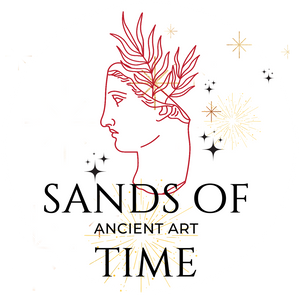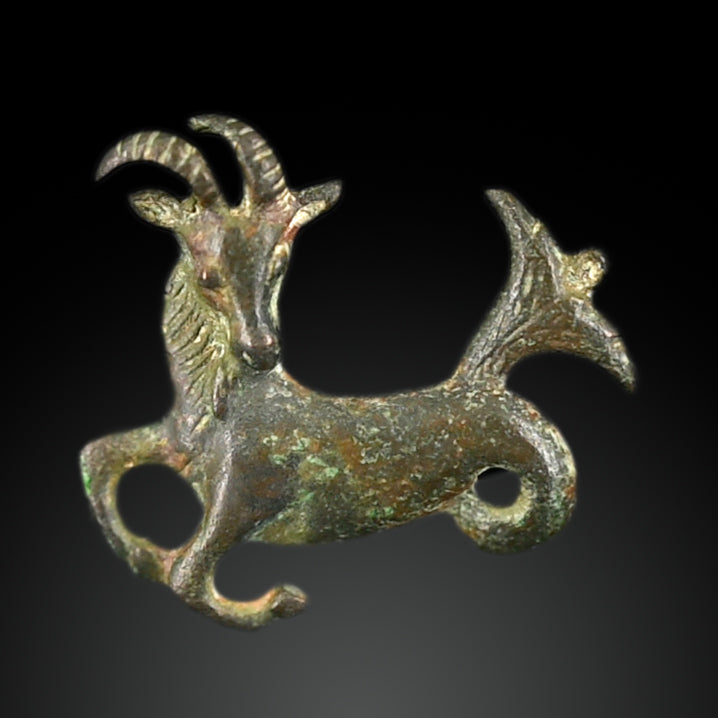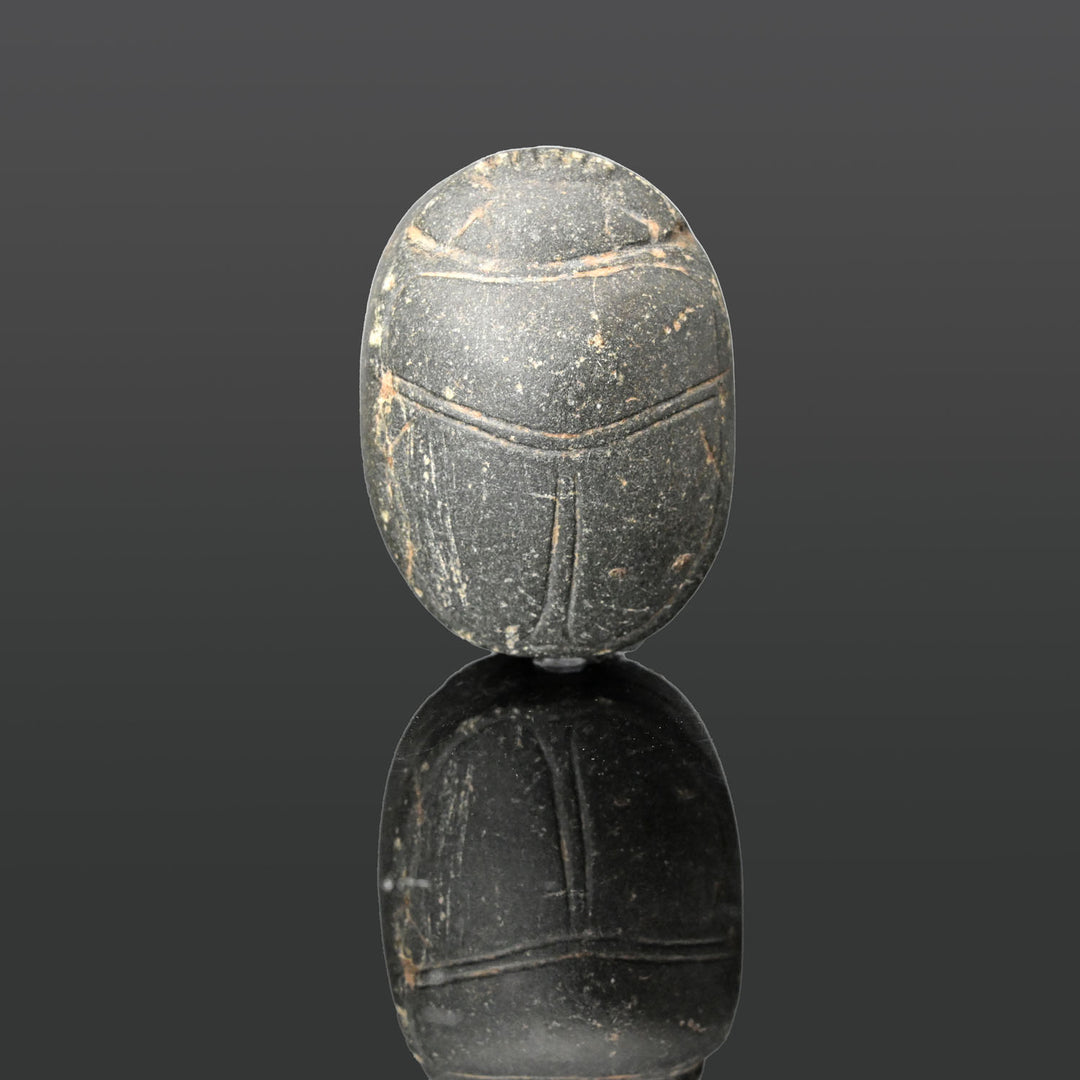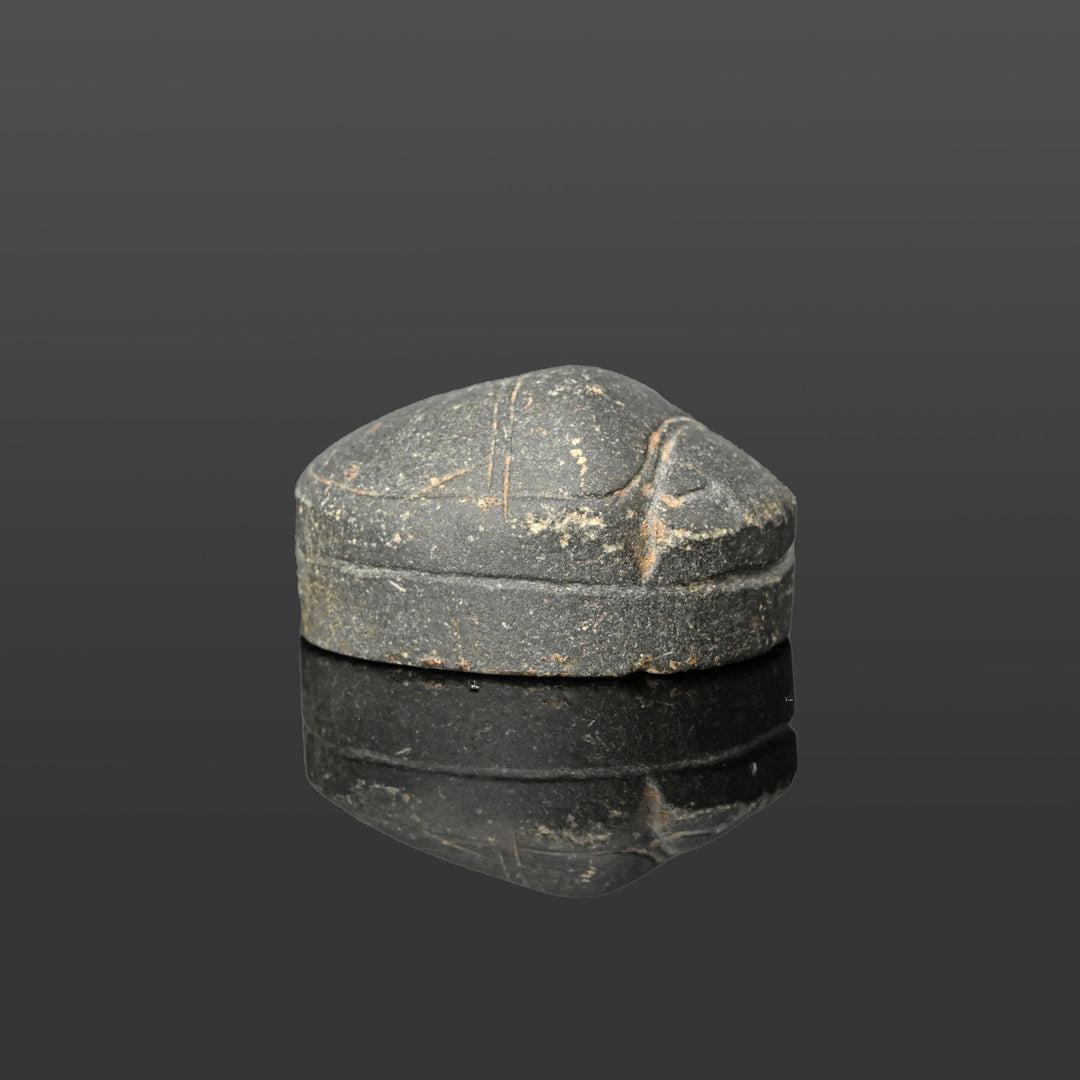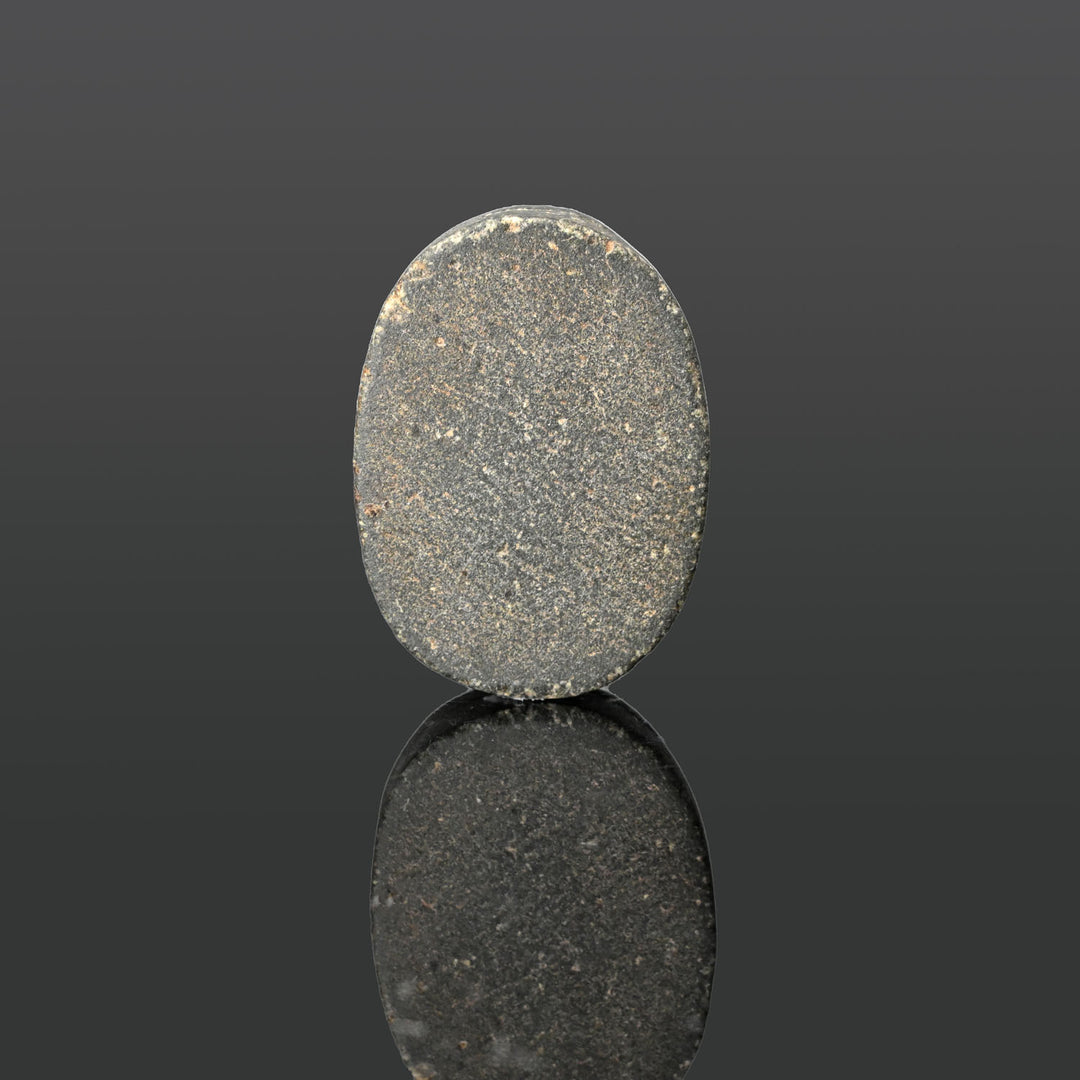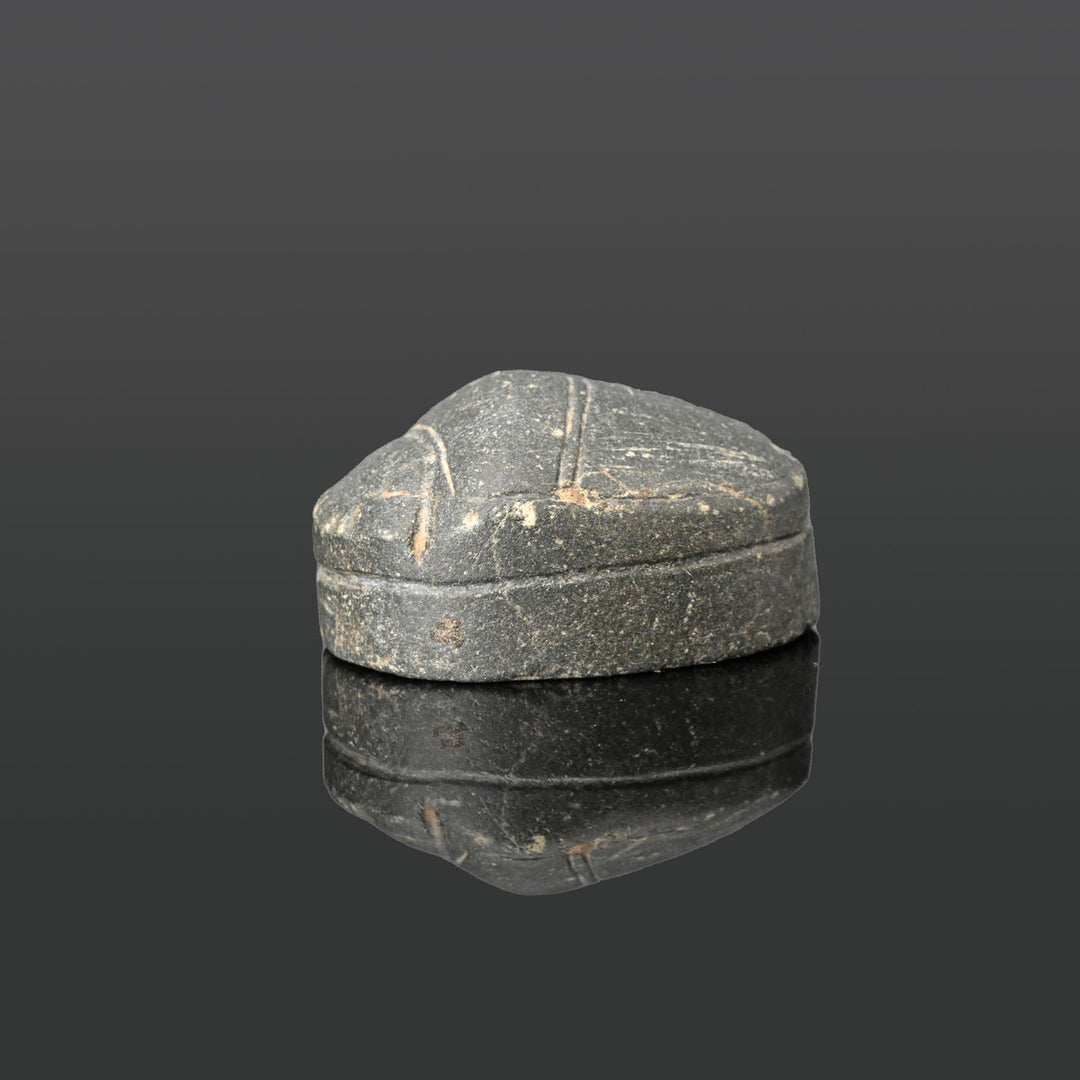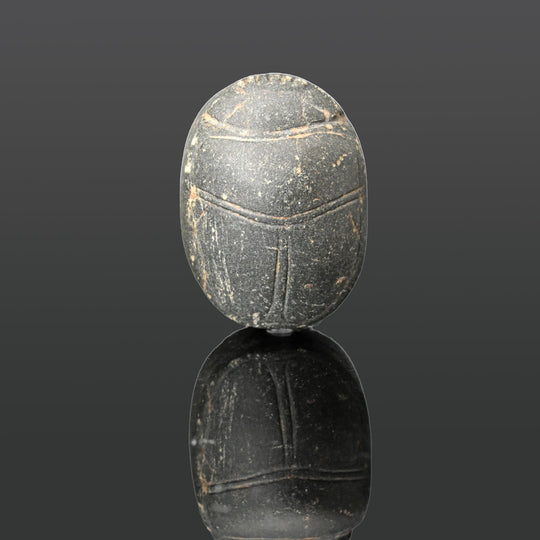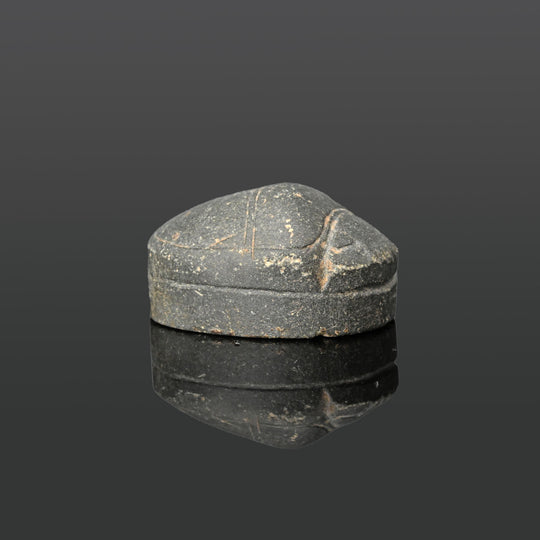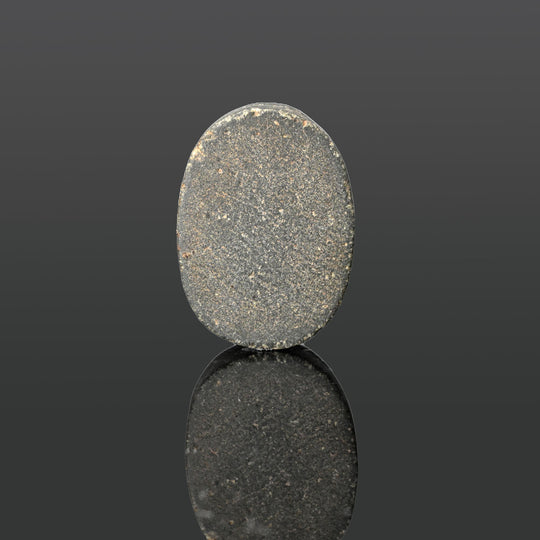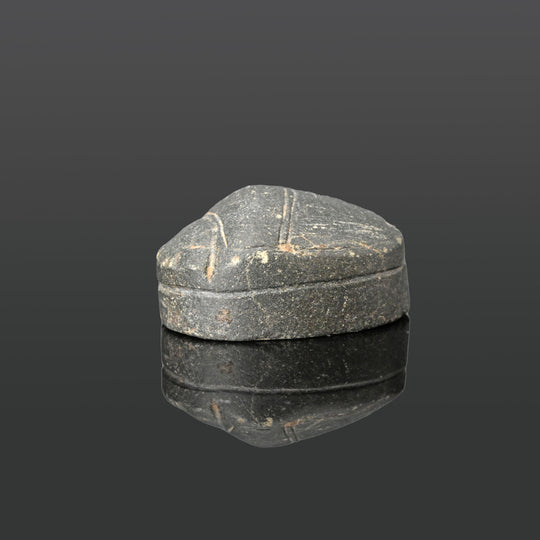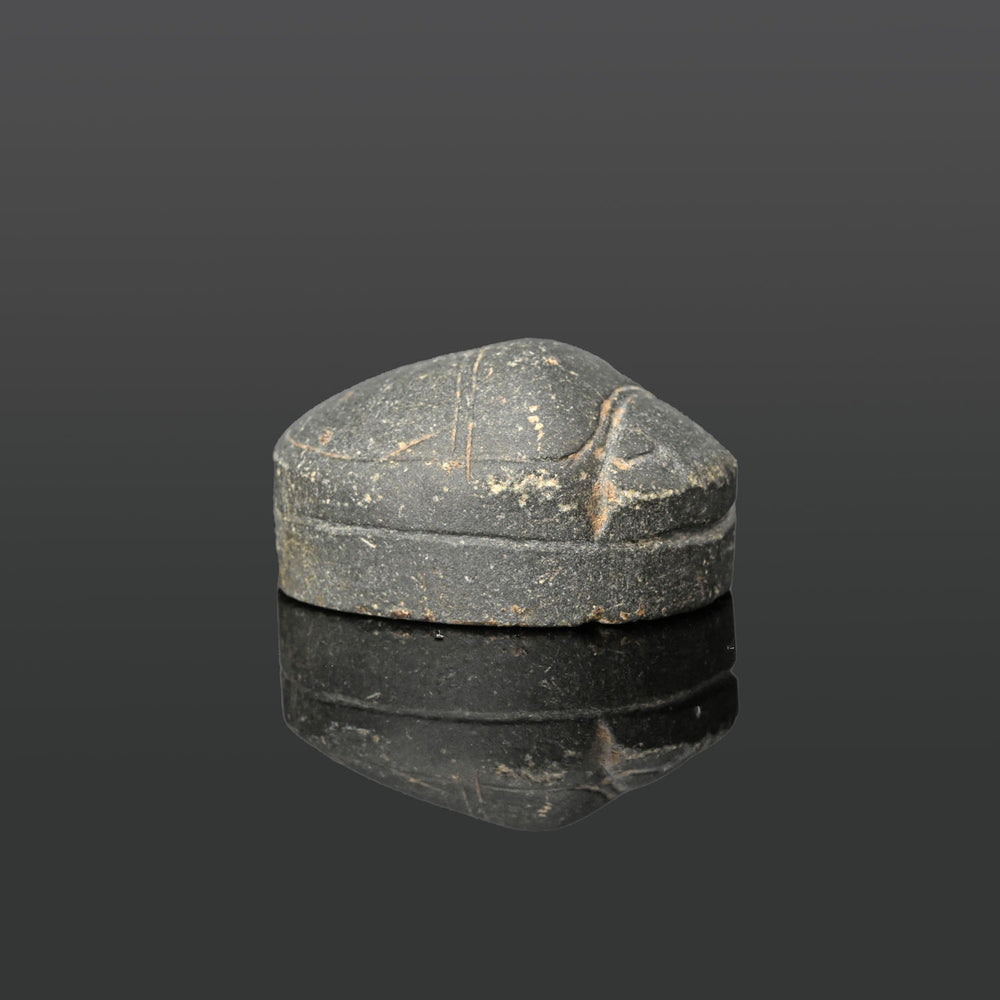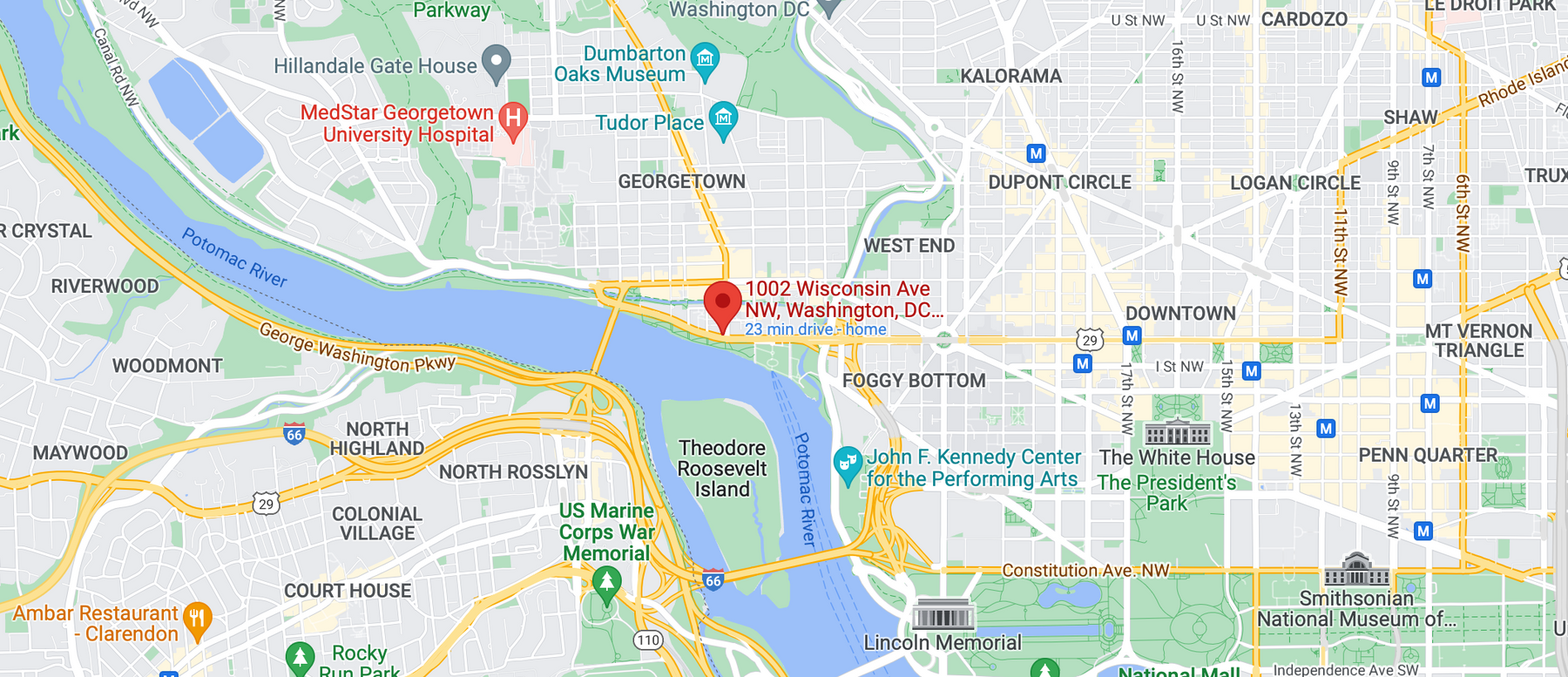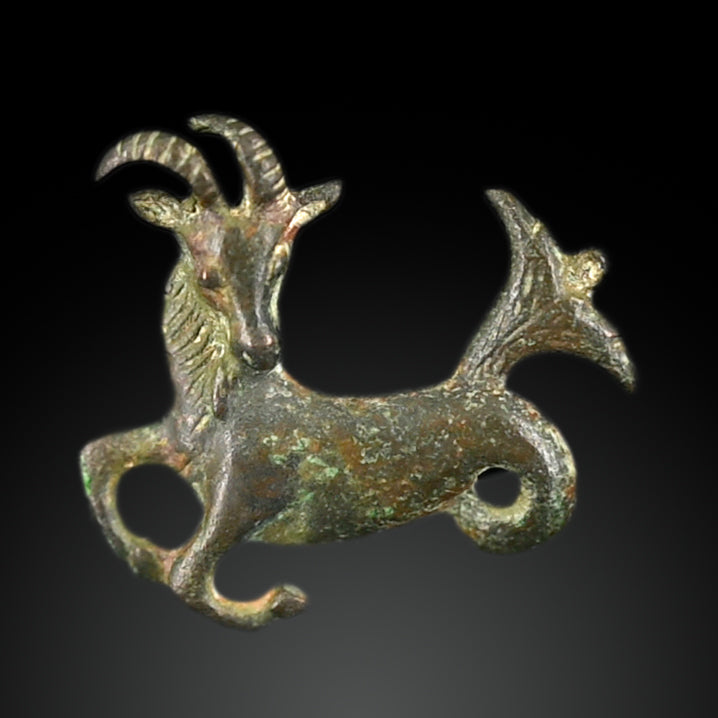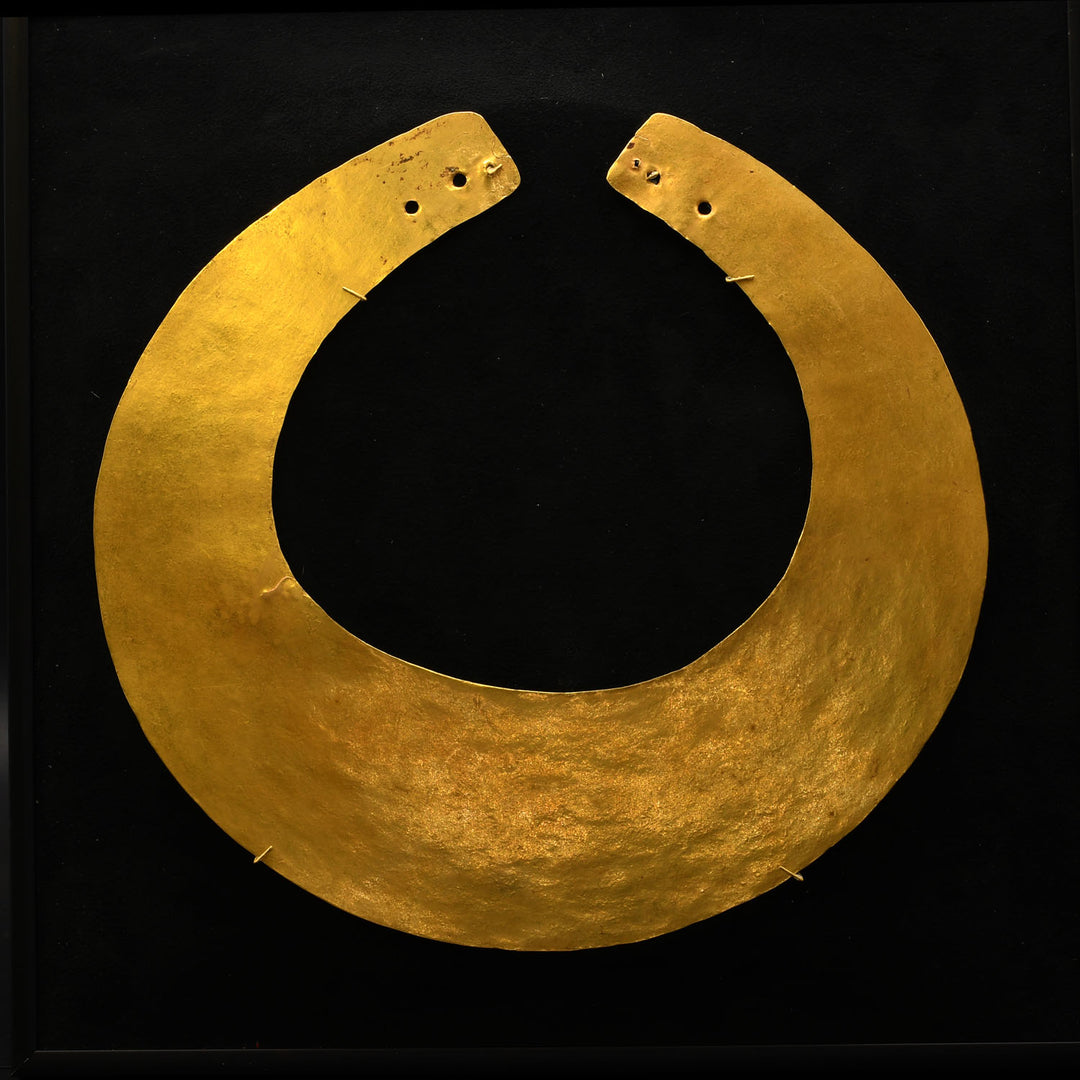A large Egyptian Greenstone Heart Scarab, Late Period, ca. 664 - 332 BCE
EA2385
- This object qualifies for free USA shipping and a flat rate fee of $60 if shipping internationally.
The scarab’s association with the daily rebirth of the young sun god, Khepri, gave the beetle a prominent role in funerary contexts. In this example, the body conforms to the usual scarabaeus sacer; the head is carved on the five notched shield (clypeus). The first segment of the upper body (prothorax) and wings (elytrae) are separated by incised lines. As is to be expected, this heart scarab has no borehole and is uninscribed on the base.
Background: The heart scarab, which first appears in Dynasty XIII, played an important role in the funerary accessories of the deceased. Not only was it the medium for magical text, it was also a symbol of self-generation and rebirth. It provided the deceased wearer with the assurance that at the final judgment he would be found "true of voice" and accepted into the eternal afterlife under the rule of the god Osiris.
Many heart scarabs bear part or all of what is known as Chapter 30B from the Book of the Dead; a prayer to the heart of Isis, who was the mother of the deceased, not to bear false witness against the deceased when he is being judged before Osiris. The Book of the Dead also instructs that the heart scarab be made of the nemhef-stone, which has been identified as green jasper, serpentine, or basalt, and be set in a gold chase suspended from the neck. It appears the stone was chosen not only for its greenish color, which symbolized life, health, and regeneration but also for its weight. The heart could not weigh more than the feather of Maat, so a heart scarab of just the right heft would work in favor of the deceased.
Reference: Andrews, Carol, Amulets of Ancient Egypt, chapter 4: Scarabs for the living and funerary scarabs, University of Texas Press (1994), pp 50-59.
Dimensions: Height: 1 5/8 inches (4 cm)
Condition: Light scratches and wear to the surface that do not detract, otherwise the scarab is intact, and in excellent condition.
Provenance: Private Maryland collection of a diplomat, acquired while serving in Egypt between 1949 and 1956, and then by descent.
Sands of Time provides a lifetime, unconditional guarantee of authenticity and provenance. Every object you purchase from us is accompanied by a Certificate of Authenticity, stating culture, provenance, and age.
Furthermore, we conduct due diligence to ensure the item, to the best of our knowledge, has not been illegally obtained from an excavation, architectural monument, public institution, or private property. Wherever possible, reference is made to existing collections or publications.Wherever possible, reference is made to existing collections or publications.
We ship Tuesday to Friday with FedEx and usually same day if your order is received before 2pm. Within the continental USA, packing, shipping and insurance is free. Depending on size and destination, delivery times range from one to five business days.
For overseas shipments we charge a small flat rate which includes packing, preparation of all customs paperwork, insurance and carrier fees in compliance with all USA and International customs requirements. Overseas shipments are sent using either USPS Priority Mail or FedEx but contact us if you have a shipping preference. International customers are responsible for all duties and taxes.
